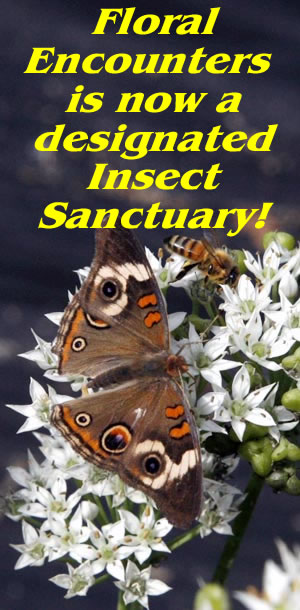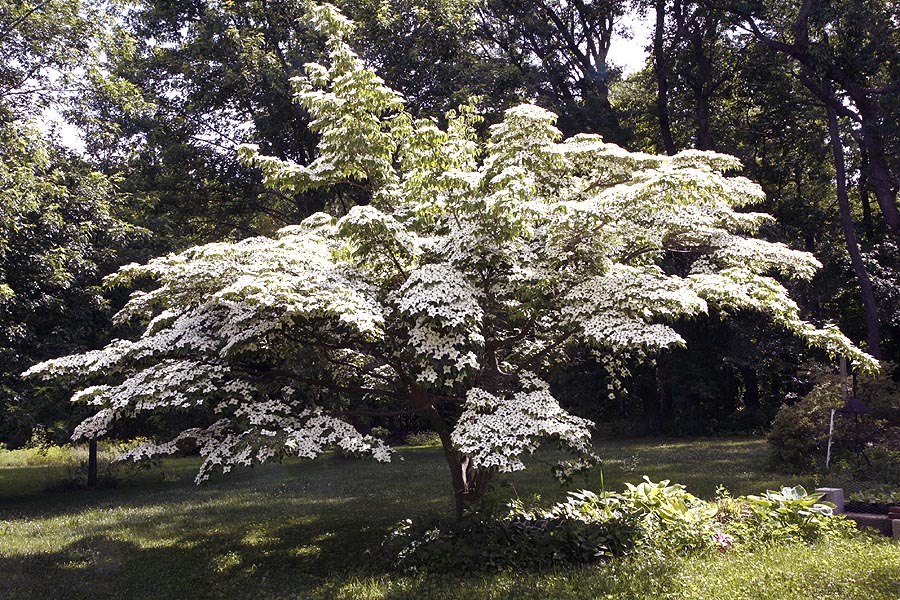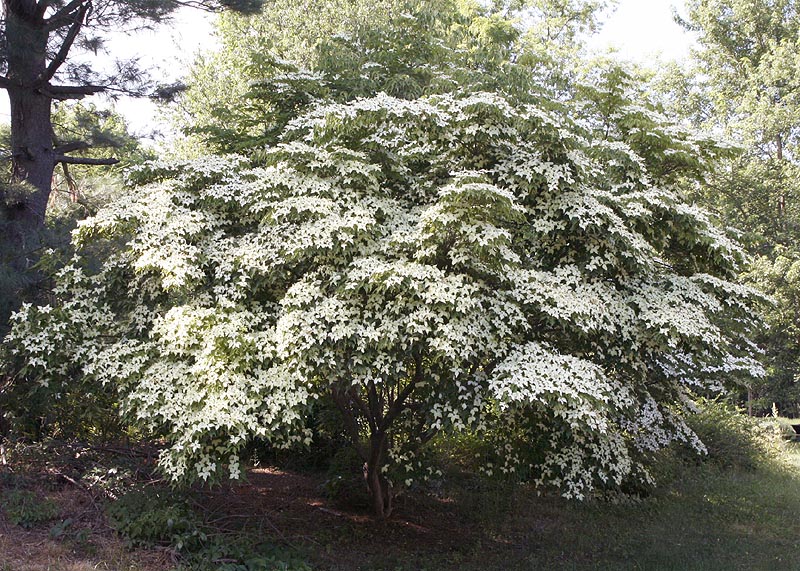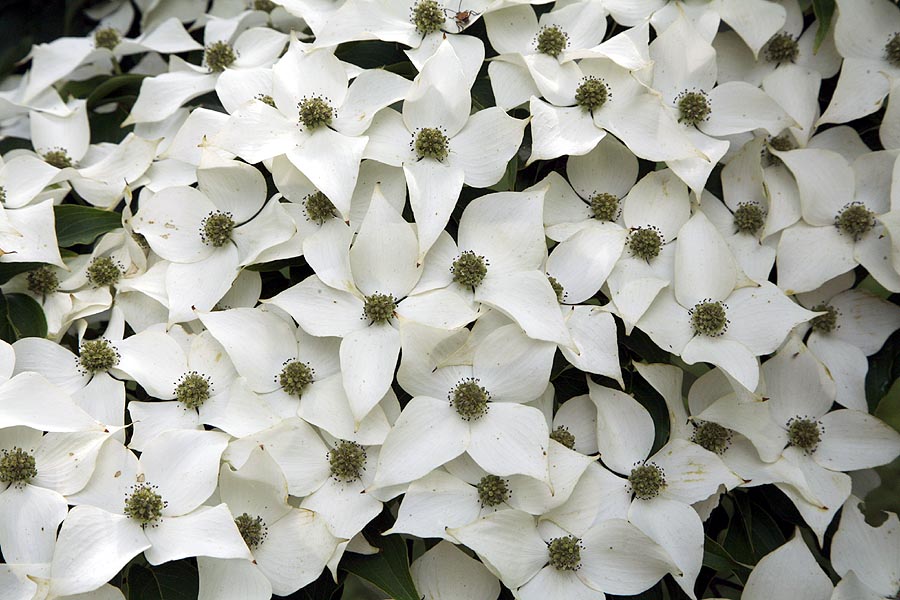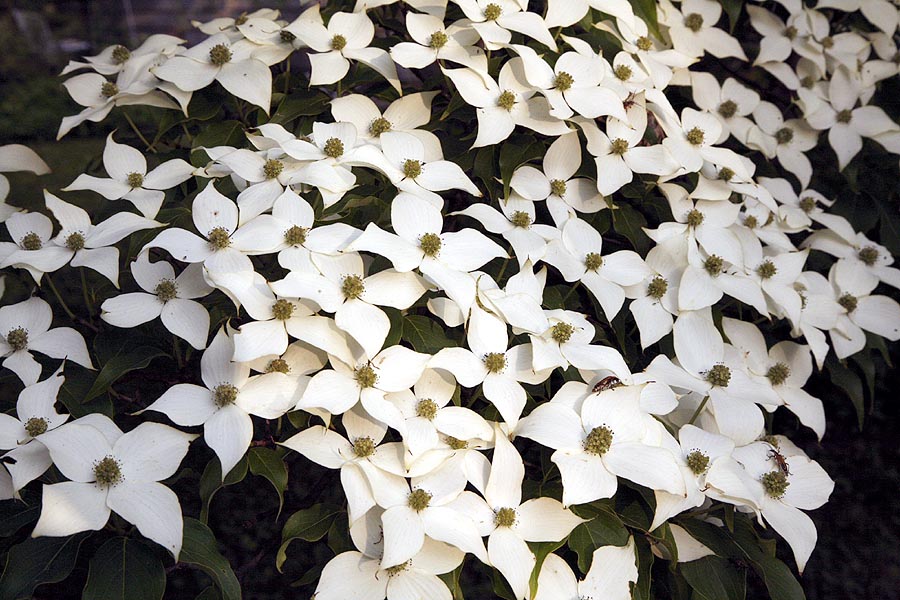This is a truly delightful ornamental tree with spectacular flowering. The white blooms almost cover the trees like snow, appearing in late spring they can last for several months in some cases. It has a lovely spreading form with wide flat branches that seem to occupy every inch of space but provide a lovely shape if planted alone with space to develop. The flowers attract many pollinators but the following bright red strawberry globe like fruits are very attractive to wildlife who consider them a delicacy. They are in fact delicious and are just as enjoyed by humans although they are not as commonly picked as other fruits - they really should be. In autumn the leaves turn scarlet and burgundy giving a great fall show after which the jigsaw like multi colored back is revealed to create winter interest.
Hardy to zone 4 around - F ( -20 C) its a very tough tree that needs little care or pruning once established fairly drought tolerant, not fussy about soil type provided it is well drained does not tolerate water logged soils.
Fairly easy to grow from seed. Needs some cold stratification before germination but its easy to achieve. Grows rapidly as a small tree but slows down as it matures reaching about 20 -30 feet when mature. Very long lived over 100 years makes a great addition to any property.
Kousa trees vary in shape. Young trees have a more upright appearance with branches reaching skyward and close to the main trunk in a more conical shape. As the tree matures more branching occurs and the trees form a layered habit with flat plains to the branches spreading over a larger area. Mature trees can reach 30 feet (9m) in height and spread the same distance outward. Their wide flat branches give them a distinctive and very attractive appearance. Trees are long lived and often reach 100 years. Kousa dogwoods are self fertile so only one tree is required to produce fruit.
We recommend soaking the seeds for 24 hours before planting whatever method you choose this ensures that seeds have sufficient moisture to begin their growing process. Moist stratifying for about 30 days is usually sufficient. See our Stratification Instructions to choose the method that best suits your needs. Some sources recommend scarifying the seed coat before you plant but we have not found this necessary.
Plant seeds in individual small pots cover lightly about 1/2 inch (1.27cm) of soil is usually sufficient. Use a good well draining potting mix. small 3 inch (7.6 cm) pots are sufficient to begin the growing process. Place in a slightly warm light area keep temperatures between 70-75 F during daylight hours cooler at night. Do not place in warmer areas it can stunt germination. A warm window is usually enough for these plants. Keep lightly moist. Germination can be erratic. Some seeds will develop in about a month others can take up to 18 months to develop. Grow plants on transplanting to larger pots as needed until about 6-8 inches (15.2-20.3 cm) tall before planting out after frost has past. Ensure that plants are hardened off before placing outside in full sun. For more details see our Growing Trees from Seeds article.
Not really fussy about soil type but prefers a rich well drained soil with plenty of organic material. In all cases some organic material/soil fertility is required but will grow in almost any soil type as long as it is fairly well drained, will not tolerate waterlogged soils. However does not do as well in very highly alkaline soils such as chalk and limestone. Does flourish in acidic soils.
Water plants well when first transplanted at least for the first year until plants establish after that trees should not need extra water unless there is little rainfall for a long period. Trees are fairly drought tolerant which also makes they useful for being close to buildings and areas were water is more difficult. Does not make a good street tree due to its spreading nature.
Does best in open areas where it can spread and the true form of this tree is show at its most glorious. Choose the location carefully since trees don't like being transplanted after they are established due to spreading shallow root system. Young trees in their conical stage are more easily transplanted but once branches have begun to spread it is less likely to survive.
Trees grow rapidly in their young life but slow down and grow much more slowly as they age only about 12 inches (30.48 cm) per year Plants usually take 5 years to flower from seed.
Once established Kousa dogwoods take very little maintenance and care.
The plant is fairly resistant to honey fungus and so can be grown in land where these fungi have killed other trees.
If so desired trees can be heavily pruned into shape. Lollypop style is fairly popular in some landscape designs of office buildings, trees seem to tolerate it well.
Fruits can also be processed into jams, jellies added to deserts or any other use you would have for fruit. Kousa ice cream is delightful.


